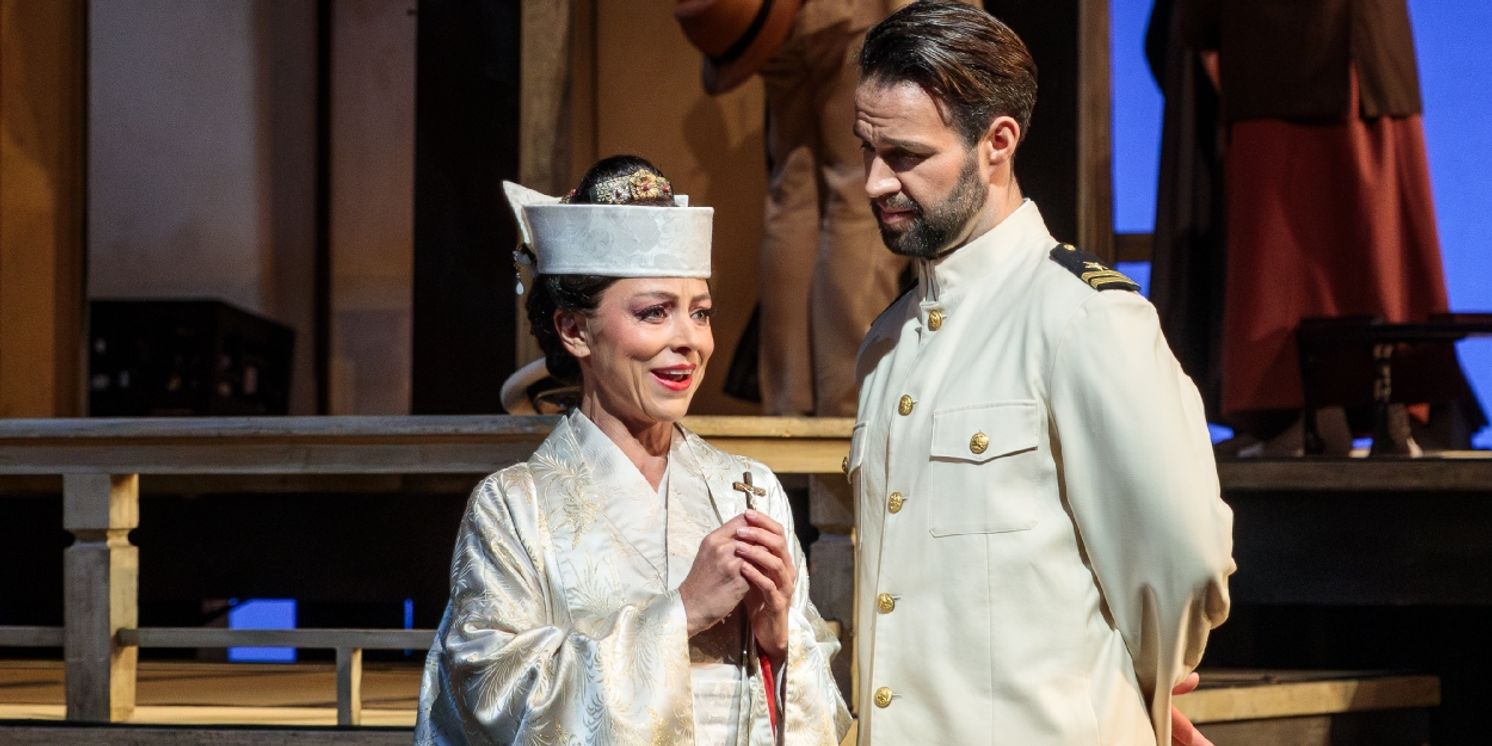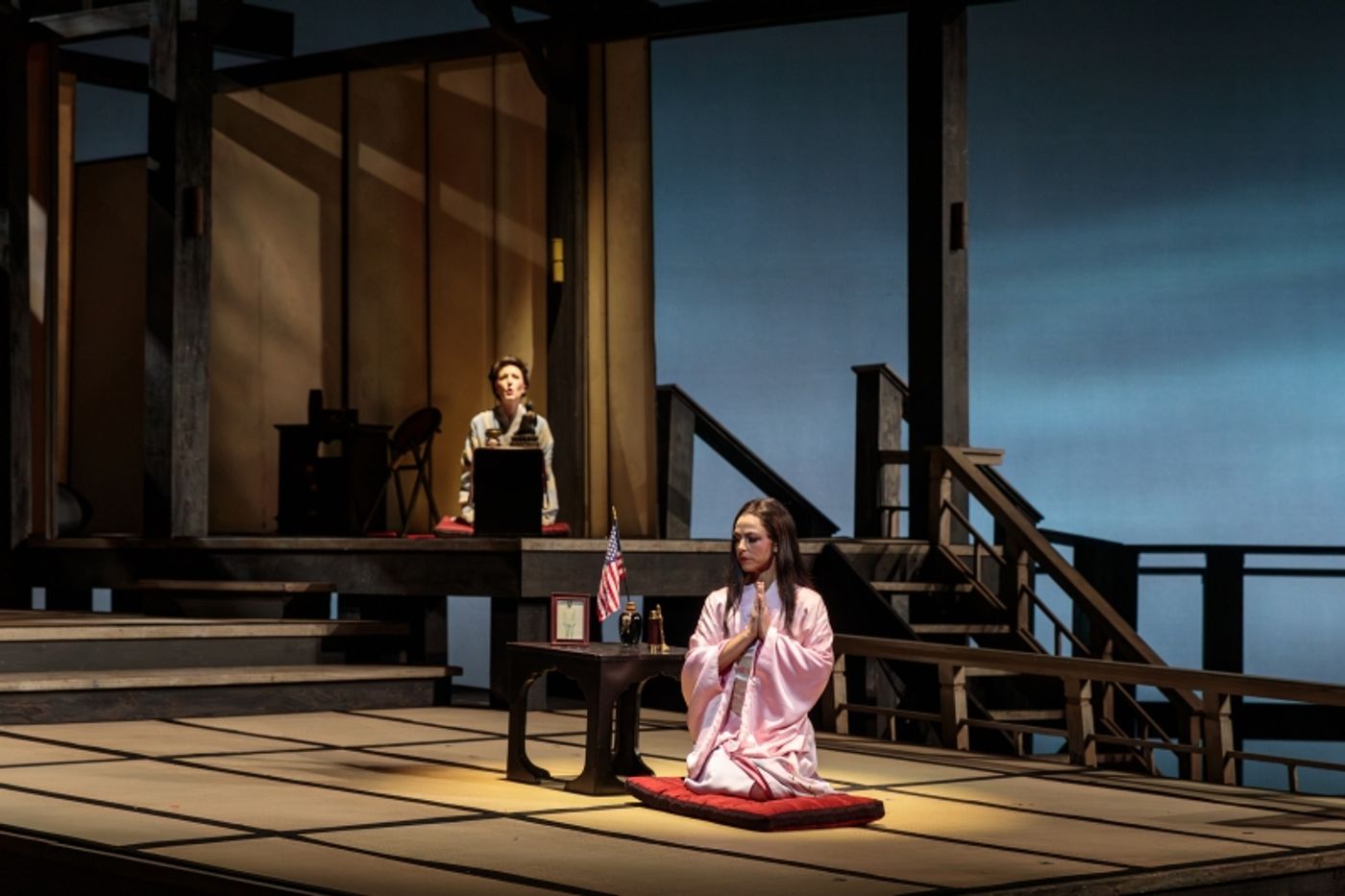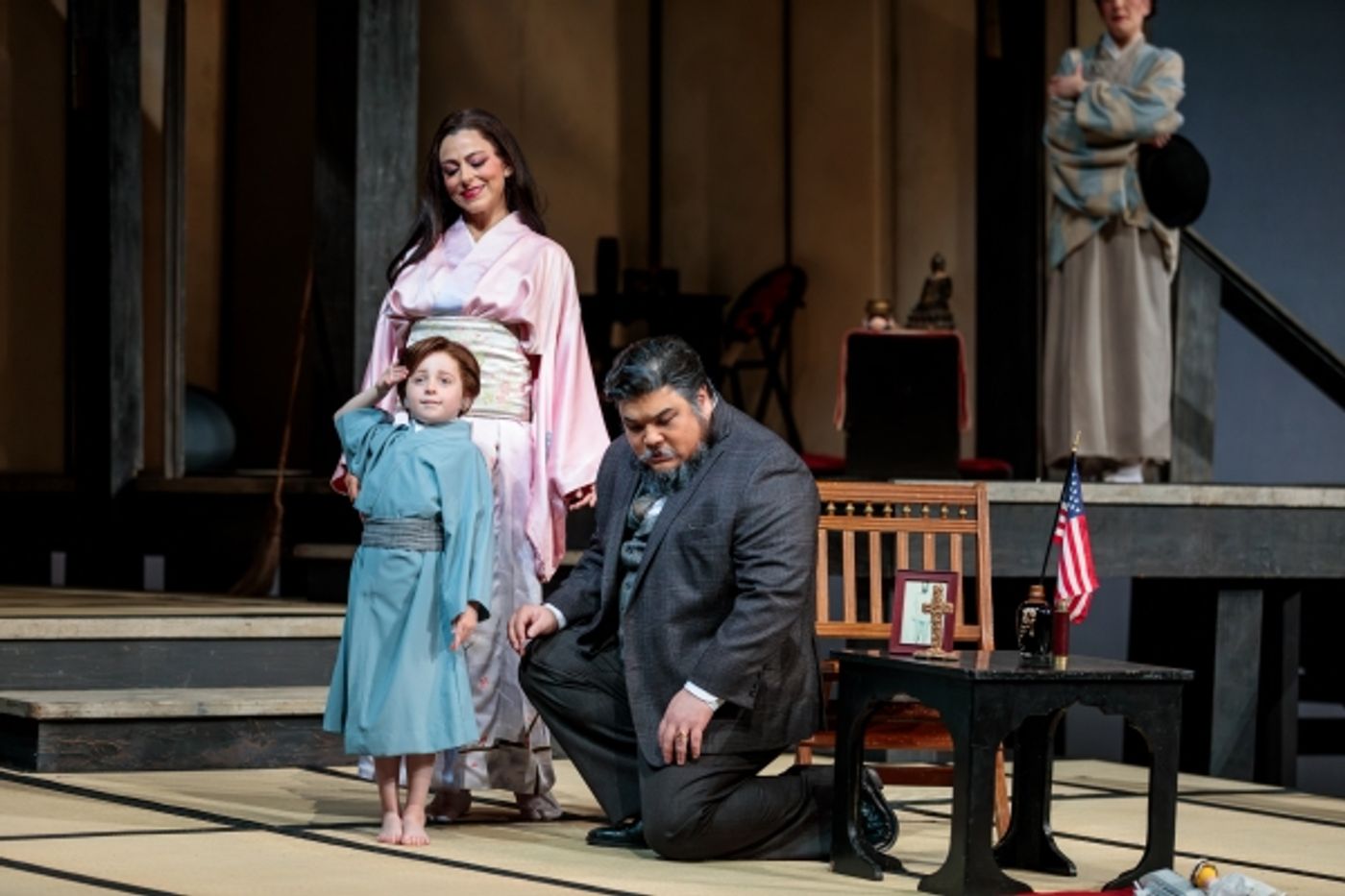Review: SAN DIEGO OPERA'S MADAMA BUTTERFLY at San Diego Civic Center
The Emotional Performance of One of the World's Most Familiar Operas

Puccini’s Madama Butterfly is one of the most popular operas ever written. It has a wonderfully lyrical score, familiar arias and a story that remains compelling even after often heard. San Diego Opera’s most recent production played to a full house on opening night, and under the direction of Jose Maria Condemi the well-chosen cast delivered a performance with impressive emotional depth. Corinne Winters’ convincing portrayal of the naïve 15-year-old Cio-Cio-San brought bravas and enthusiastic applause at curtain call. But her portrayal of innocence exploited meant both bravos and boos over extended applause for tenor Adam Smith’s convincing version of her heartless seducer, Lieutenant Pinkerton.
I’d never thought of Pinkerton as one of opera’s greatest villains, but instead a shallow youth who’d made a mistake with unintended consequences he deeply regretted. Director Condemi moved him much closer to La Tosca’s Scarpia, who uses his powerful position to force Tosca to yield to his amorous advances. Even Don Giovanni, an amoral scoundrel if there ever was one, especially by today’s standards, has a roguish charm that usually gets him out of trouble. He couldn’t have had his thousands of brief flings without it (and Tinder in San Diego opera’s recent updated production).
Pinkerton is charming only with Butterfly, while not even bothering to pretend differently with anyone else. He makes it clear to U.S. Consul Sharpless (baritone Kidon Choi) that he sees the marriage as a temporary convenience. When he leaves Japan, he will take advantage of Japanese law to abandon Cio-Cio-San and seek an American wife.
Adam Smith’s Pinkerton became even more despicable with a surprise visit after a three-year absence. He and the wife he’d found in America have come to pick up the boy he’d fathered with Cio-Cio-San before leaving Japan. When he learns that she still loves him and believed he would return as her husband, he leaves it up to his new wife to explain why they’d returned, declaring himself a coward who wants to avoid an unpleasant meeting with his abandoned bride.

The supporting cast ably strengthened the emotional impact of the principal singers. Mezzo-soprano Stephanie Doche sang as Cio-Cio-San’s companion Suzuki. She has a lovely voice that blended well with Winter’s. Choi’s masculine voice convincingly expressed sincere concern for Cio-Cio-San and made Pinkerton’s callous cruelty even more unforgivable.
Welcome comic relief was provided by Joel Sorenson as Cio-Cio-San’s marriage broker Goro. He has a warm tenor with a broad vibrato that increased the humorous effect of his slightly campy portrayal of a man anxious to please to improve his business prospects. In less prominent roles, baritone Søren Pedersen offered entitled pomposity as Yamadori, Goro’s rejected replacement for the absent Lieutenant.
Bass DeAndre Simmons was an imposing presence as the angry Bonze out to stop Cio-Cio-San’s marriage and her conversion to Christianity to please to Pinkerton. Five-year-old Addison Smyres seemed surprisingly at home on stage as Cio-Cio-San’s young son Trouble, blithely playing with a toy battleship and an American flag while poignant tragedy unfolded around him.
San Diego Opera’s Principal Conductor Yves Abel and the San Diego Symphony made it look easy to support and meld flawlessly with the singers while playing a gloriously appealing score with difficult dynamics. In the famous humming chorus of the second act, Chorus Master Bruce Stasyna’s singers provided the perfect peaceful mood for Cio-Cio-San’s prayers in a delicious moment of calm before her hope is crushed.

The only obvious flaw in an excellent performance had nothing to do with the cast, orchestra or chorus but, to put it mildly, it was ill-timed. The humming chorus is followed by an orchestral passage as Nagasaki comes to life on the morning after Cio-Cio-San’s sleepless vigil. Bird calls accompany the orchestra in some productions, as they did on the opening night of this one. Unfortunately, and I hope accidently, the birds were set loose prematurely in an annoying electronic-sounding loop that competed with Cio-Cio-San’s highly anticipated aria “Un bel di.”
For those who attended, and anyone else who doesn’t mind tearing up, I recommend listening to a birdless version by Maria Callas.
This was a review of the April 26, 2024 performance. For a calendar of future performances visit San Diego Opera.
Photos compliments of San Diego Opera
Reader Reviews
Videos


